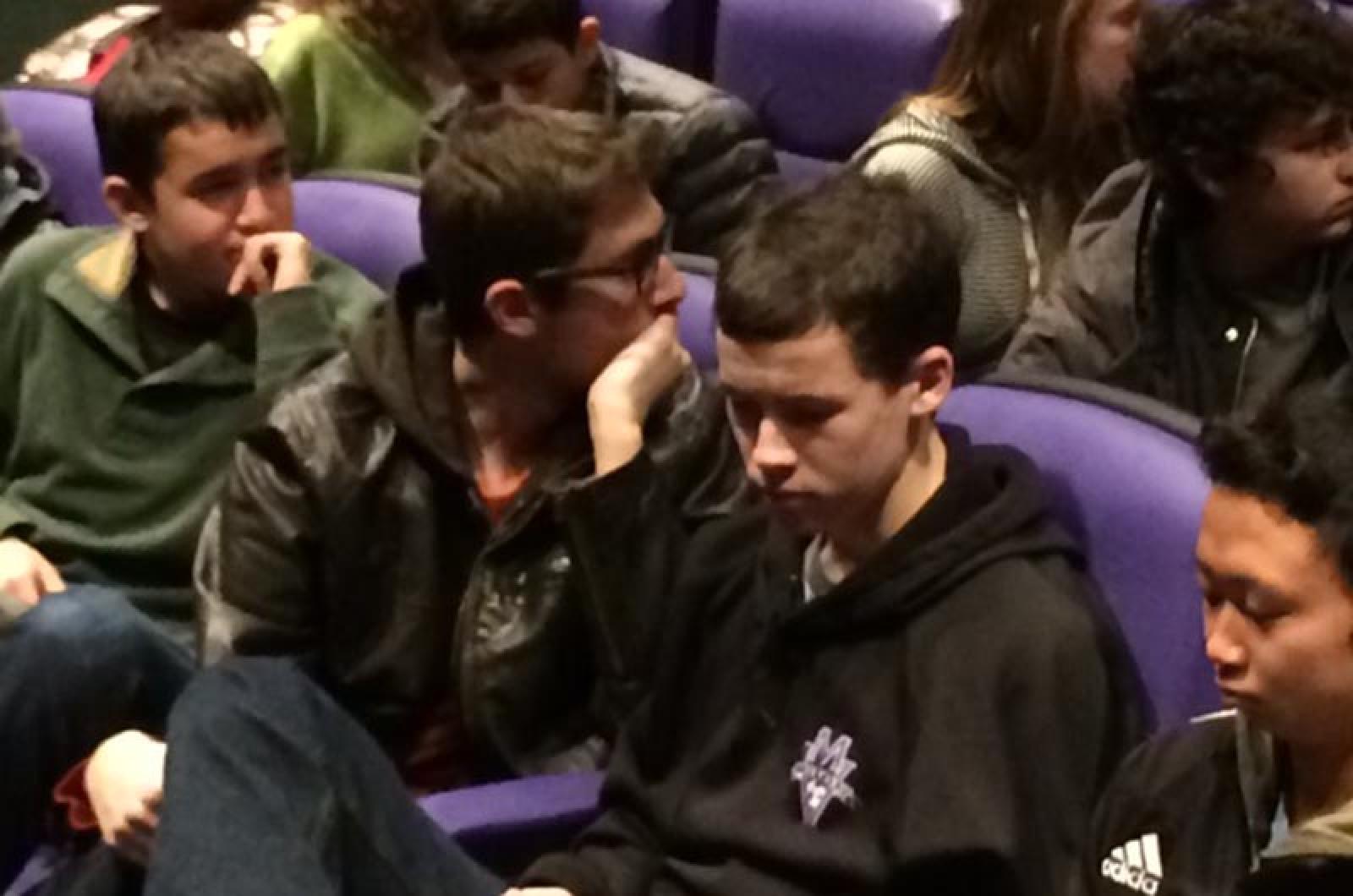The Martha’s Vineyard Film Center was the scene of an unusual activity on Sunday when a group of people from every age and ethnic group gathered to listen to a radio play. The presentation was Look What a Wonder, a gospel-driven opera written by Walter Robinson that told the story of Denmark Vesey, his family and his community. The sound of the music was glorious and the story it told, profoundly tragic. In an amazing piece of work, Robinson captured through soaring voices and gospel rhythms, the true story of Denmark Vesey, a boy enslaved at 17 who later buys his own freedom. As a free man, Denmark marries Rose, though she and their two children are the property of a local landowner. Rising above the degradation of their lives, they become active members of a black church, Shiloh, where rebellion and human dignity are discussed. When Denmark wins the lottery, he plans to buy one of his children but is cheated. His carefully planned rebellion never actually happened, but Denmark paid with his life for his part in the planning.
The performance was held as a benefit for the Vineyard chapter of the NAACP. Speaking to students in the audience, Ewell Hopkins observed that for many the concept of listening together to a radio play was unique. “With those buds in your ears you make your own listening choices and so each one of you could be hearing something different, but today we are all sharing the same experience,” he said. A large, freestanding radio on the stage with its accompanying rocking chair fed the illusion that the soaring music was part of a radio play and gave focus to the idea of listening intently without visual images. “I saw a radio like that in the Smithsonian,” someone was overheard saying.
The story was one of enslavement, treachery, abuse, murder and its final soul-chilling moment when the eight-year-old daughter of Denmark Vesey was sold on the block. The word “sold” reverberated around the theatre as discussion began of the horrors that we had heard.
The discussion was about where do we go from here and how do we deal with the legacy of our history. These are not easy questions for anyone, but Lee Faraca, a senior at the high school, was the first to speak. “We all listened and we all heard a terrible story and without any images or pictures to distract me,” he said. “I made my own pictures and I think we probably all did. The story was told in pictures in our own minds.” The assembled students murmured agreement as the microphone was handed from one young person to another.
“I knew about slavery and I knew that it had been a terrible situation for an individual but I somehow never thought about how it impacted families,” said senior Grant Santos. “This was a story about a family that was destroyed by slavery and racism. That really brought the reality of it all home to me.” Visibly moved, freshman Rose Engler said: “I feel so sad. I knew it was mean and I knew terrible things happened but in this story the family had paid a thousand dollars to get their child back and they were cheated and just given another kid, like it didn’t matter which one they got. How could anyone do that?”
Young people listened to each other attentively and then it was the turn of their elders. Oak Bluffs police chief Erik Blake, president of the Vineyard NAACP noted: “This was not the story of one family, or a hundred families, it was millions of families.”
For former president of the chapter and longtime educator Jakki Hunt, the focus and meaning of the whole event was on the young people. “They’re wonderful and listening to what they have to say makes me feel better about the future,” she said. “I really do believe that through education like this we will get to a better world. These young people will do better because they have learned the truth, and they’ve learned how to think. That’s how you make the world make sense.”
A variety of perspectives were offered and connections made and a consensus emerged that we need to learn these stories and ask the hard questions. We have all inherited a sad legacy and through events such as this when the issues get discussed, we can move toward understanding. Despite the sadness of the story and the emotions it stirred, it was still a remarkable musical experience.
“I loved it, the music was incredible. It made the story so real to me but just as music it was fantastic,” said Grant Santos.
The young people who had committed to spending three hours of their time on a cold, snowy day listening to the story of Denmark Vesey and sharing conversation and food with their elders, earned a round of applause. They had created a new space where topics like identity and social justice could be discussed across the barriers of age, ethnicity and experience. Everyone took something of great value from that conversation.
Elaine Cawley Weintraub is chairman of the history department at the Martha’s Vineyard Regional High School.




Comments (2)
Comments
Comment policy »